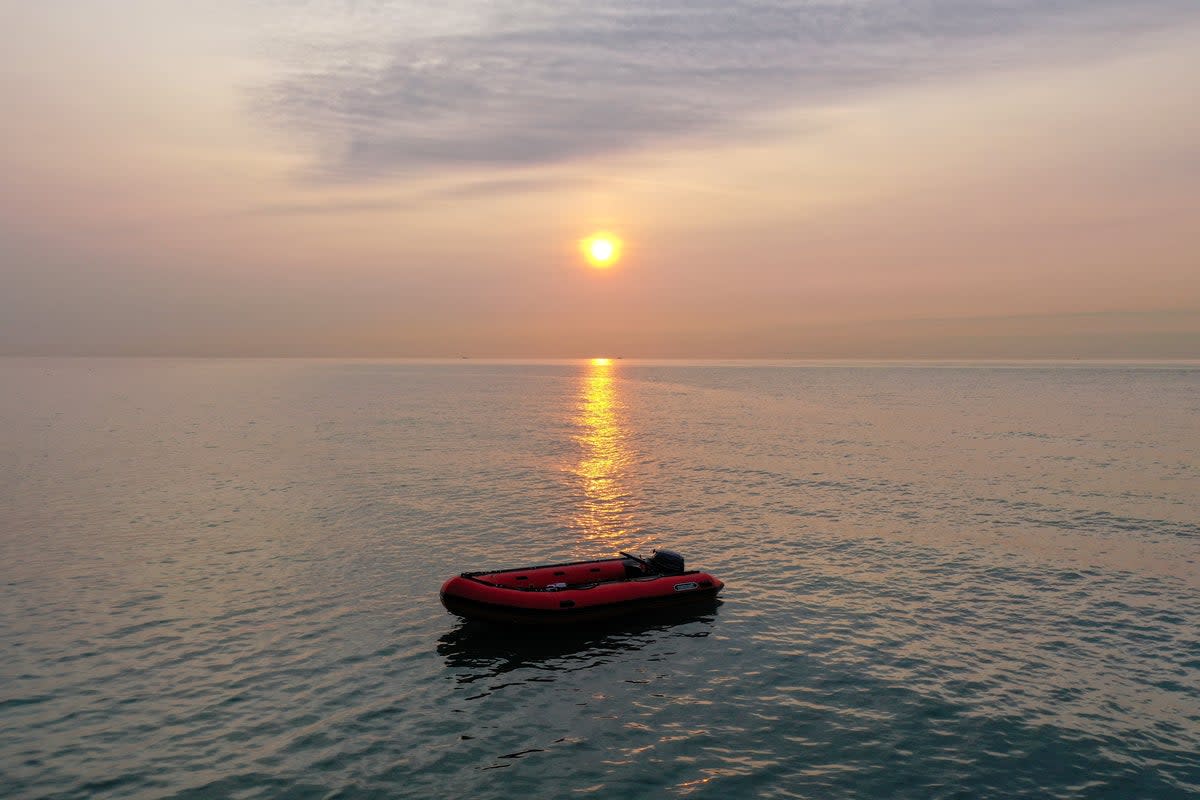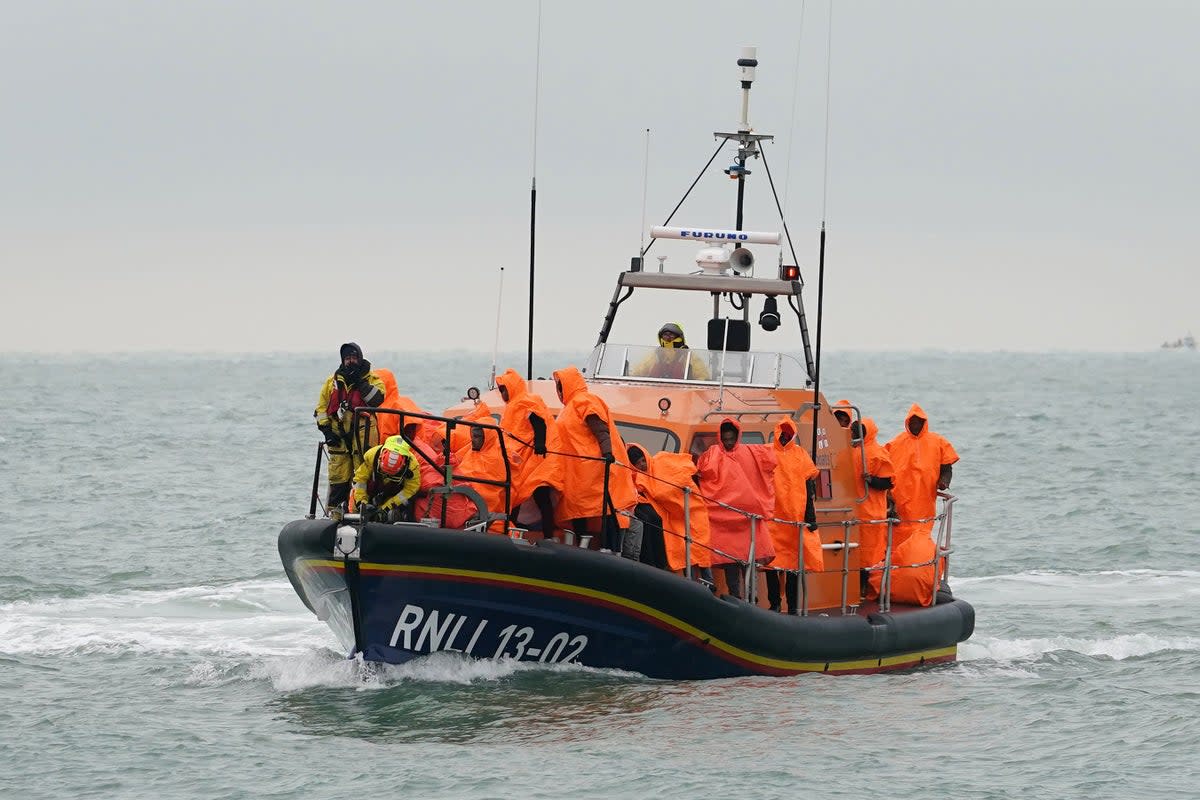Thousands of refugee women and children stranded in ‘unsafe’ countries because of UK failures

Thousands of refugee women and children are stuck in “unsafe situations” in countries including Afghanistan and Syria because of failures by the British government, a watchdog has found.
Some desperate families are resorting to “irregular” routes, such as small boat crossings, to reach relatives in the UK because of huge delays to family reunion processes.
A damning report published on Tuesday said that almost 8,000 people – the vast majority of whom are women and children – are stranded outside the UK in potential danger, while their loved ones suffer waits of up to two years to bring them to safety.
David Neal, the independent chief inspector of borders and immigration (ICIBI), said the Home Office had failed to give family reunion “appropriate attention” and processes had deteriorated in recent years.
“Family reunion is one of the Home Office’s few safe and legal routes, and it is failing those who seek to rely on it, which is predominantly women and children,” he said.
“The lack of an effective family reunion route carries with it the risk that vulnerable people will resort to dangerous journeys to join their family members in the UK.”
The report said that many of the refugees in the UK “experienced a deterioration in their mental health” during lengthy waits for decisions, which “also prolonged the time family members, mostly women and children, remained in potentially unsafe or precarious situations”.
Examples included a female refugee who was separated from her young son for three years after reaching the UK and a girl left in a country where she was at risk of female genital mutilation.
One man who applied for his two children to join him in Britain faced months of “unnecessary delays” because of admin errors, even though the Home Office knew he had mental health issues and had previously attempted suicide.
Applicants are likely to be in the same country their relatives fled, and the top nationalities of family reunion cases are Syrians, Eritreans, Afghans, Iranians, Sudanese and Yemenis.
But the report said that there was “no evidence of any prioritisation” based on vulnerability, and that the Home Office made no enquiries into whether people were in danger before processing applications.
“They sit in a pile and will only be expedited through MP correspondence, threat of litigation or sheer luck,” it added. “Only then is any assessment of vulnerability made by a decision maker.”
Family reunion staff described their role as “firefighting” and expressed frustration that the applications considered first were not necessarily the most vulnerable, the report said.
It quoted a manager who admitted: “Applicants that shout the loudest get looked at first … you only identify vulnerability when we open the case or if [an] applicant contacts us, or there is MP interest.”
Most applications are not considered for at least four months – double the Home Office’s 60-day target – and delays are expected to rise if the government fulfils its promise to speed up decision-making in the wider asylum backlog.
More than one in 10 outstanding family reunion applications are from Afghans, but those evacuated following the Taliban takeover cannot use it for their loved ones because the government’s scheme did not grant them legal refugee status.
The ICIBI said that when it questioned Home Office officials on the gap, their responses focused on how they would “change guidance to show that refugee family reunion is not an option for these people”, rather than look at changing the situation.
The UK is also the only country in Europe not to allow children to sponsor relatives to join them, while an EU-wide system to allow the transfer of children to join family in Britain was lost during Brexit.
The government further restricted family reunion rights with the controversial Nationality and Borders Act, which said that recognised refugees who arrive on small boats will not automatically be entitled to family reunion because of their mode of arrival.

Mr Neal said the system was “beset with delays and a team ill-equipped to manage the complexity and volume of applications awaiting consideration”, and that delays were worsened further last year by the diversion of “urgently needed” staff to the Homes for Ukraine scheme.
“The redirection of resources to meet the demands of the latest crisis can have a negative impact on business-as-usual activity, often to the detriment of vulnerable individuals who may themselves have been victims of earlier crises,” the watchdog said.
“The Home Office must prioritise family reunion and build a structure that is sufficiently robust to respond to world events rather than be derailed by the next one.”
The government has accepted all five recommendations, but the ICIBI said the department had “not addressed” some concerns around its policy.
The Home Office said there were other legal provisions for extended family members and if reunion applications fail, visas can be granted in “exceptional circumstances”.
A spokesperson added: “We offer safe and legal routes to reunite families and since 2015, have issued over 43,700 refugee family reunion visas, giving specific family members of those granted protection in the UK the opportunity to join them here. Over half of these visas were issued to children.
“We are committed to improving how we process family reunion applications, including speeding up processing times.
“We have fully accepted all the recommendations made in this report from the Independent Chief Inspector of Borders and Immigration. A number have already been implemented and work to address the remaining issues is underway.”
